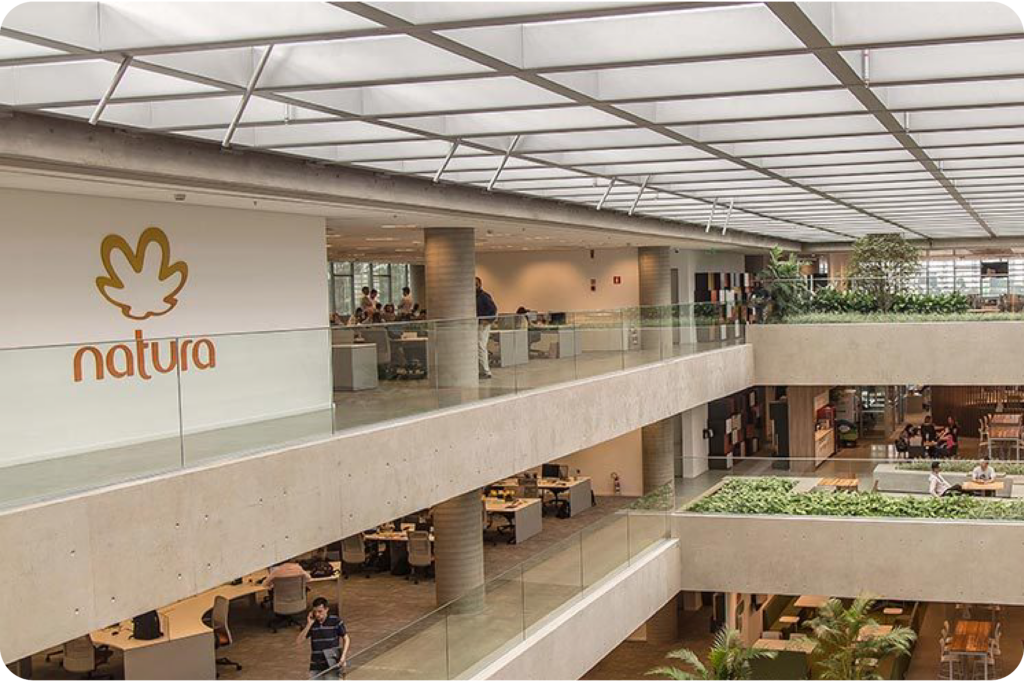Natura is a Brazilian brand created in 1969, out of a passion for cosmetics and caring for people. It is present in seven Latin American countries, in addition to France, the United States and Malaysia. Today, the company has 6,900 employees and 2 million consultants.

Today, Natura is one of the top companies in Brazil that deals with start-up companies and also invests in research and universities.
Among these values, Performa_IT joined Natura, wich, like us, believes in the power of connecting people to work together to make the world a better place.
In this environment of an already established culture of innovation, we act as a potentiating factor, bringing innovation to life and accelerating it in the daily lives of employees.
On that occasion, we were challenged to participate in the internal innovation program, with the purpose of training Design Thinking multipliers within the company’s financial sector, both in Brazil and in other Latin American countries, such as Chile and Argentina.

The training, wich we developed in co-creation with the Natura team, aimed to develop the knowledge of people representing the finance teams, so that they could autonomously apply Design Thinking concepts, such as the Design Sprint.
The training was 100% remote and involved 25 professionals from different countries, including Brazil, Chile and Argentina.
The entire process was designed to accompany these professionals in each important step and to guarantee the development in each one of them, in a practical way.
In the first phase, all Design Thinking concepts and their functionalities were studied in depth, involving the team in the tools and their applications.
With the goal of fostering the autonomy of the participants, part of the content was focused on improving the necessary skills of a facilitator to bring knowledge to the teams and continue to make improvements over time.
To apply the knowledge in a practical way, we worked with real problems of each of the professionals, mapping and choosing the best tools for each context.
In weekly meetings, we could see the growth and development of these professionals’ skills, get to know the opportunities for improvement, make the plan of attack for the next week, and analyze the team’s feeling in facing the changes.
The Design Thinking knowledge can be applied in several contexts. For this reason, we created support materials so that the mentorees could consult, whenever necessary, the concepts, review the application methods, besides having their own agile toolkit.
All of this was custom-designed and made available in Portuguese and Spanish.
Two topics are important to evaluate the positive results of a Design Thinking training.
> The change of mindset in the face of problems.
With the proposal to solve real problems, we almost automatically conquer the engagement of the teams, because the common pains feed the desire for co-creation. This transforms people’s view of the problems and increases the repertoire to deal with other issues in the future.
> Transformation based on acquired knowledge.
When we promote autonomy, so that the people involved in the processes can make decisions and cooperate, we awaken a gigantic innovation potential for businesses. These people are capable of transforming their reality, promoting small actions that, in scale, generate a great impact.
In this way, innovation is capable of changing points of view, bringing Insights, generating new opportunities and, therefore, transforming the future of businesses.

Teamwork was valued and encouraged, as each team member had an important role to play in achieving the goals of their area. In addition, the constant and transparent communication fostered by this process is essential to ensure that everyone is on the same page and can work together efficiently.
Significant results can be achieved in a short period of time when team members work together and are fully engaged. This allows teams to adapt quickly to change and meet customer needs more efficiently.
In summary, Natura builds an entire process that enables and empowers its teams to achieve their goals more effectively and efficiently.
Av. Antônio Artioli, 570, Bloco Flims B1 – Sala 118
Campinas, São Paulo
13049-253, BR
Av. Dom João II 50, Ed.Mar Vermelho, Parque das Nações
Lisbon 1990-095, PT